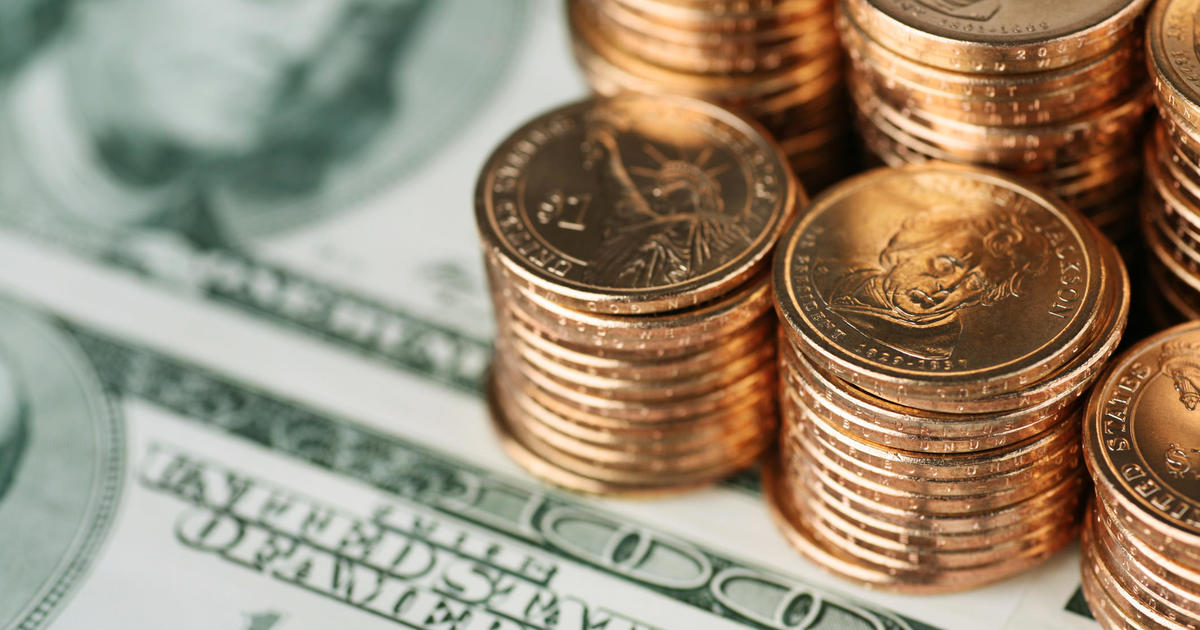Carbon taxes are hot stuff -- here's how they would work
- Proposals to implement a carbon tax are getting a serious look as scientists warn that time is running out to reverse the effects of climate change.
- Such a tax would price carbon emissions in proportion to the toll that polluters contribute to global warming.
- Legislation now under discussion would impose a carbon tax that ranges from $40 a ton on the low end to $55 a ton--that could raise the price of gas by 50 cents a gallon or more.
Corporate America has done an about-face on climate change, Axios reports, with some 75 executives this week on Capitol Hill lobbying for the government to put a price on emissions.
The idea of a carbon tax is one long favored by economists—it's made appearances in the Wall Street Journal, been proposed in multiple bipartisan bills in Congress and earlier this year became national policy in Canada. It's coming back as the U.S. debates how to move the world's largest economy off carbon and raise trillions of dollars in the process.
What does a carbon tax do?
Climate pollution continues to be a problem because the U.S. economy hasn't evolved as quickly as the science has. An overwhelming number of scientists now agree that human-caused emissions of carbon dioxide, methane and other gases are heating up the planet past the point where it can comfortably support human life. The problem -- and this is key -- is that creating those emissions is, in financial terms, relatively cheap.
One answer to that conundrum: Putting a price on those emissions that's equivalent to the toll they take on the environment.
"It's the most effective way to reduce emissions," said John Larsen, a director at Rhodium Group. "There are emissions of greenhouse gases across the economy, and it's very difficult to have a single policy instrument that can get at all of them all at once. A carbon tax is one instrument that can do that," he said.
How would it work?
How much a carbon tax adds to the price of something depends on how much carbon that thing contains. Most immediately, it affects the price of energy, like gasoline and electricity from fossil fuels, and indirectly raises the costs of other products, like goods produced in a factory run by fossil-fuel power.
The more carbon-intensive a fuel is, the higher its tax will be. Coal—the dirtiest of fuels—would be taxed higher than natural gas, which would be taxed higher than wind or hydropower, and so forth.
Instead of relying on policymakers and the industries that lobby them to come up with a plan for who must cut emissions and how much—and then enforcing it—a carbon tax lets the market sort it out.
As a group of economists recently wrote in the Wall Street Journal, "A carbon tax will send a powerful price signal that harnesses the invisible hand of the marketplace."
How much money would a carbon tax raise?
Carbon tax proposals vary widely on this point, but most agree on two things: The proposed tax must be high enough to incent companies and consumers to abandon carbon-intensive fuels; and the tax must rise over time in order to drive emissions down further and further.
In the real world, carbon taxes have had mixed results because they rarely set the price of carbon at a high enough level, Amy Harder, a climate and energy reporter with Axios, told CBS News. "One of the detailed questions, once the legislating starts happening, is what is the right price?" she said.
Legislation now under discussion in Washington envisions a carbon tax that ranges from $40 a ton on the low end to $55 a ton, with the price increasingly slightly every year. That's a price experts say is more than enough to achieve the emissions reductions the U.S. agreed to as part of the Paris Climate Accord (Under President Donald Trump, the U.S. withdrew from the treaty in 2017.)
For U.S. consumers, a $50-per-ton carbon tax would result in gas prices rising about 50 cents per gallon-- that comes to about $19 per month for a typical home heated with natural gas (assuming that energy companies passed on the entirety of the tax to customers instead of cutting into their profits.) For U.S. drivers, meanwhile, a 50 cent hike in prices at the pump would hurt -- it's worth noting that a move to hike gas prices in France last year set off an ongoing wave of protests, with motorists decrying the measure as a regressive tax burden on average people.
There are pros and cons to both approaches, experts say. Starting with a low tax initially makes a carbon tax an easier sell politically, but it takes more time to see the effects in reduced emissions. Scientists at the U.N. have said the world has only about 12 years to seriously reduce greenhouse-gas emissions before the effects of climate change become irreversible.
Where would the money go?
Many of the current carbon-tax proposals call for the money to be returned to consumers in the form of a dividend or a tax credit. Many studies show such a tax would also modestly redistribute income from the very richest Americans to everyone else.
"Low- and middle-income households will, on average, receive more in rebates than they pay in carbon tax," said Noah Kaufman, a research scholar at the SIPA Center on Global Energy Policy at Columbia University. "Rich people buy more of everything, and that includes more carbon-intensive goods and services. If you're equally distributing that income to everyone, poor and middle-income households come out way ahead."
Many progressives prefer for that tax revenue to be invested into renewable energy development or jobs training for people whose jobs would disappear in a decarbonized economy. (Conservatives prefer to keep the money out of the government's coffers altogether, or to use a carbon tax to reduce other types of taxes.)
Corporations, meanwhile, support carbon-tax proposals that include language to shield them from climate litigation and potentially more stringent regulation. "It's not really about saving the planet," Harder said. "It's about legal pressure—some of them are facing lawsuits—and it's also about investor pressure."
Still, there are many ideas for using tax revenue from a carbon tax, which means any proposal that advances will face vigorous debate.
"Rarely in the political cycle is there an opportunity where tens or millions of new revenue show up," Larsen said. He calculates that a $50-per-ton tax on carbon could potentially raise $180 billion in one year, about what the corporate income tax currently raises today.
"Once you've gotten over whether or not you do a carbon tax," he added, "the most contentious issue is what you do with the money."



